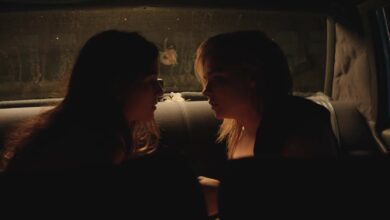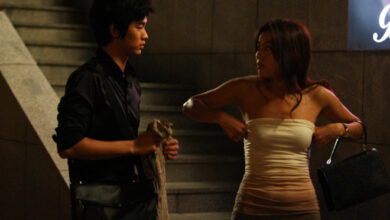THE NIGHT PORTER (1974): A Love Affair Forged in Hell
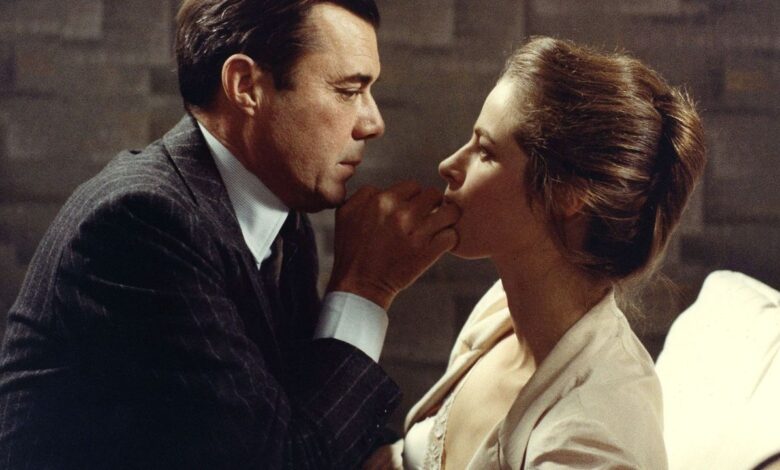
Welcome to the Hotel of Shadows
Vienna, 1957. A city haunted by silence, repression, and ghosts that wear uniforms. Inside a cold, dimly lit hotel, a man named Max works as a night porter. He’s calm, methodical, discreet—the kind of man you wouldn’t notice unless you looked closely. But you should look closely. Because Max isn’t just folding towels and delivering room service. He’s a former SS officer, hiding in plain sight. And when a woman named Lucia checks in one night, the past he thought was buried claws its way back with stilettos and opera gloves.
She Was His Prisoner. Now She’s His Obsession.
Lucia is beautiful, composed, and untouchable—until she sees Max. Then her world fractures. She knew him once, in a place without names. A concentration camp. Back then, she was a teenage prisoner. He was the one who interrogated her. And also the one who dressed her like Marlene Dietrich, made her sing, touched her, punished her, protected her. Their relationship was madness wrapped in perversion, a nightmare stitched with moments of perverse tenderness. Years later, when their eyes meet again in that Vienna hotel, the old script starts to play—wordless, violent, erotic. She could run. But she stays.
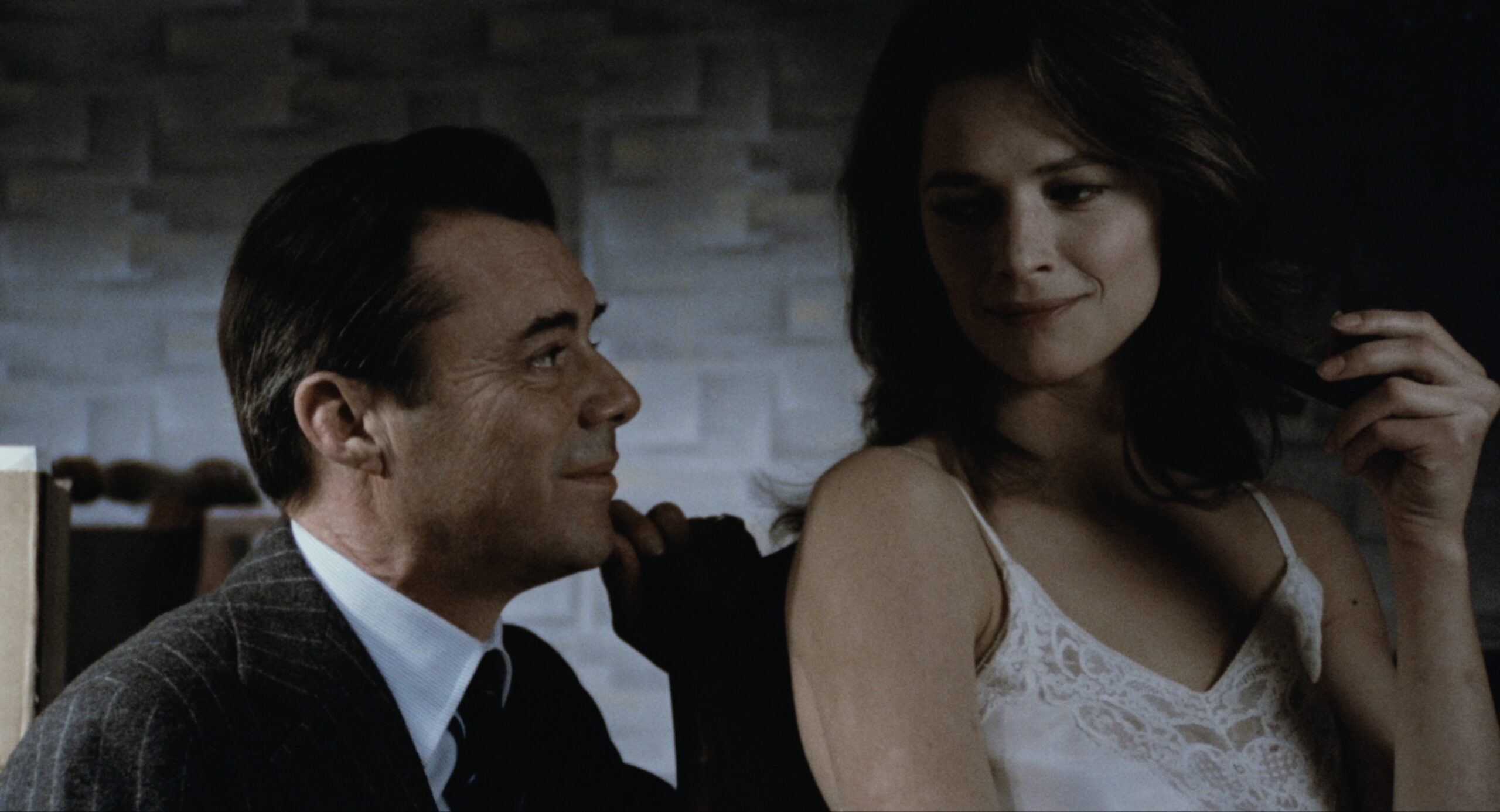
Not Romance. Not Redemption. Something Worse.
Forget what you know about love stories. The Night Porter doesn’t offer catharsis, happy endings, or moral clarity. It offers something more brutal: compulsion. Lucia and Max fall back into each other not because they want to, but because they must. They lock themselves inside his apartment, closing out the world. They play out their past like a ritual—dressing up, undressing, feeding, punishing, begging. It’s claustrophobic. Grotesque. Seductive. Like watching two addicts shoot poison into each other’s veins with trembling hands and hungry eyes. And you, the viewer, cannot look away.
The Most Dangerous Game: Memory
Liliana Cavani doesn’t judge. She simply films. And that makes The Night Porter feel even more transgressive. Every scene forces you to ask: is this love, or is it something darker? Is Lucia a victim still? Or has she become a willing participant? Is Max a predator… or a broken man clinging to the only connection he’s ever had? The film strips away easy answers. It makes you feel like a voyeur—complicit. And it lingers. Oh, it lingers.
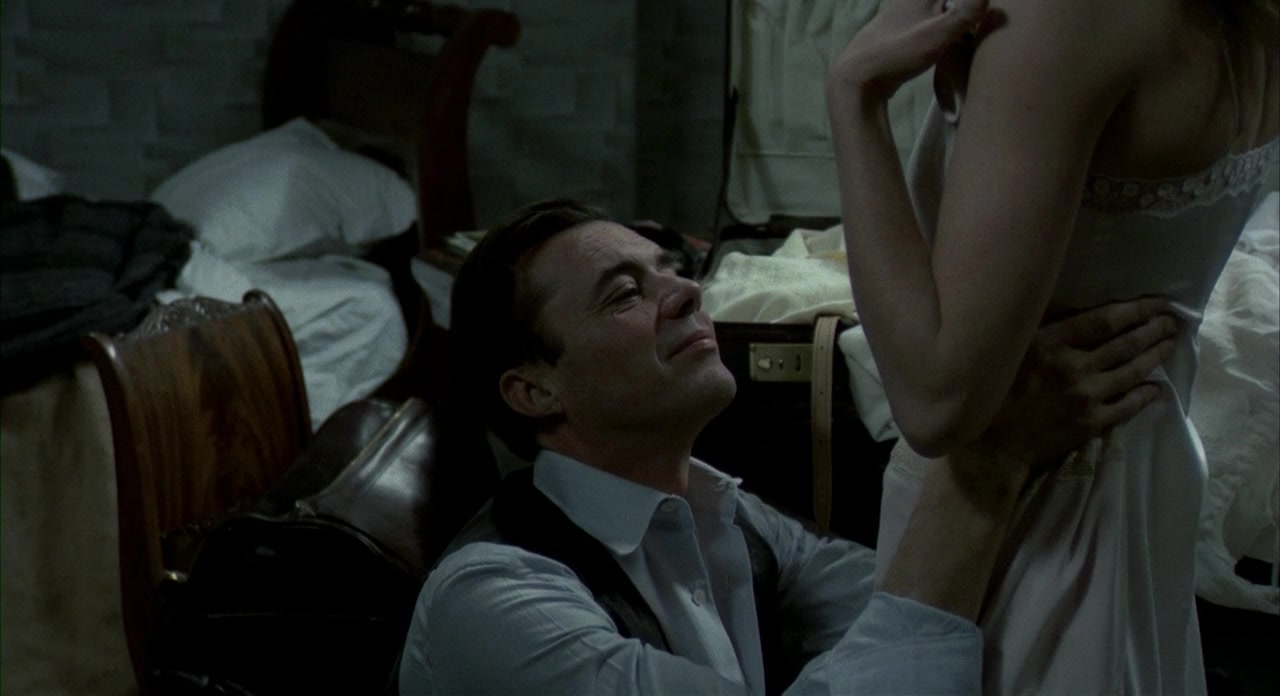
Charlotte Rampling Is a Weapon
Rampling, with her wide eyes and cold fire, delivers a performance that’s terrifying in its restraint. She never begs for sympathy. She doesn’t cry out. She simply exists, enigmatic and feral. In one infamous scene, she dances in a Nazi cap and suspenders, singing a German love song. It’s erotic and horrifying, glamorous and obscene. You’re not sure if you’re turned on or repulsed—and that’s exactly what Cavani wants. Dirk Bogarde, meanwhile, plays Max as a man who’s not just guilty—he’s defined by it. There’s no redemption arc. Only descent.
Why This Film Still Burns
Released in 1974, The Night Porter sparked outrage. Critics were divided—some called it art, others called it filth. It was banned in several countries. Feminists condemned it. Nazis tried to ignore it. And yet, it survived. Not because it’s sexy. But because it’s dangerous. It touches the rawest nerve: the idea that suffering and desire can coexist. That abuse doesn’t always end with freedom. That some relationships dig into your psyche like rusted hooks and never let go.
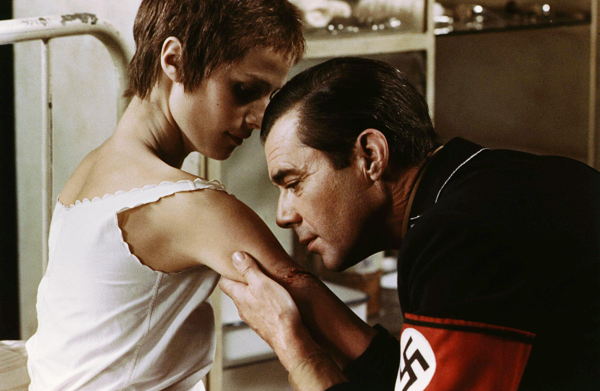
The Hotel Room Is a Tomb
As the film unspools toward its tragic, inevitable end, Max and Lucia are no longer man and woman. They’re ghosts. Addicts. Prisoner and jailer, switching roles in slow, breathless rhythm. The world outside wants to punish them, erase them, bury the past. But they refuse. They cling to their shared sickness as if it’s the only thing keeping them alive. When they finally step out of the hotel, it’s not for redemption. It’s for surrender.
Final Warning: You’ll Never Be Clean Again
Watching The Night Porter is like plunging your hands into dark water, feeling something slippery and alive brush past your fingers. You’ll feel discomfort. Shame. Arousal. Disgust. And then you’ll ask yourself: why am I still watching? And then you’ll realize—you’re just like them.
This isn’t a film. It’s a confession booth. And by the time the credits roll, you’ll be absolved of nothing.

